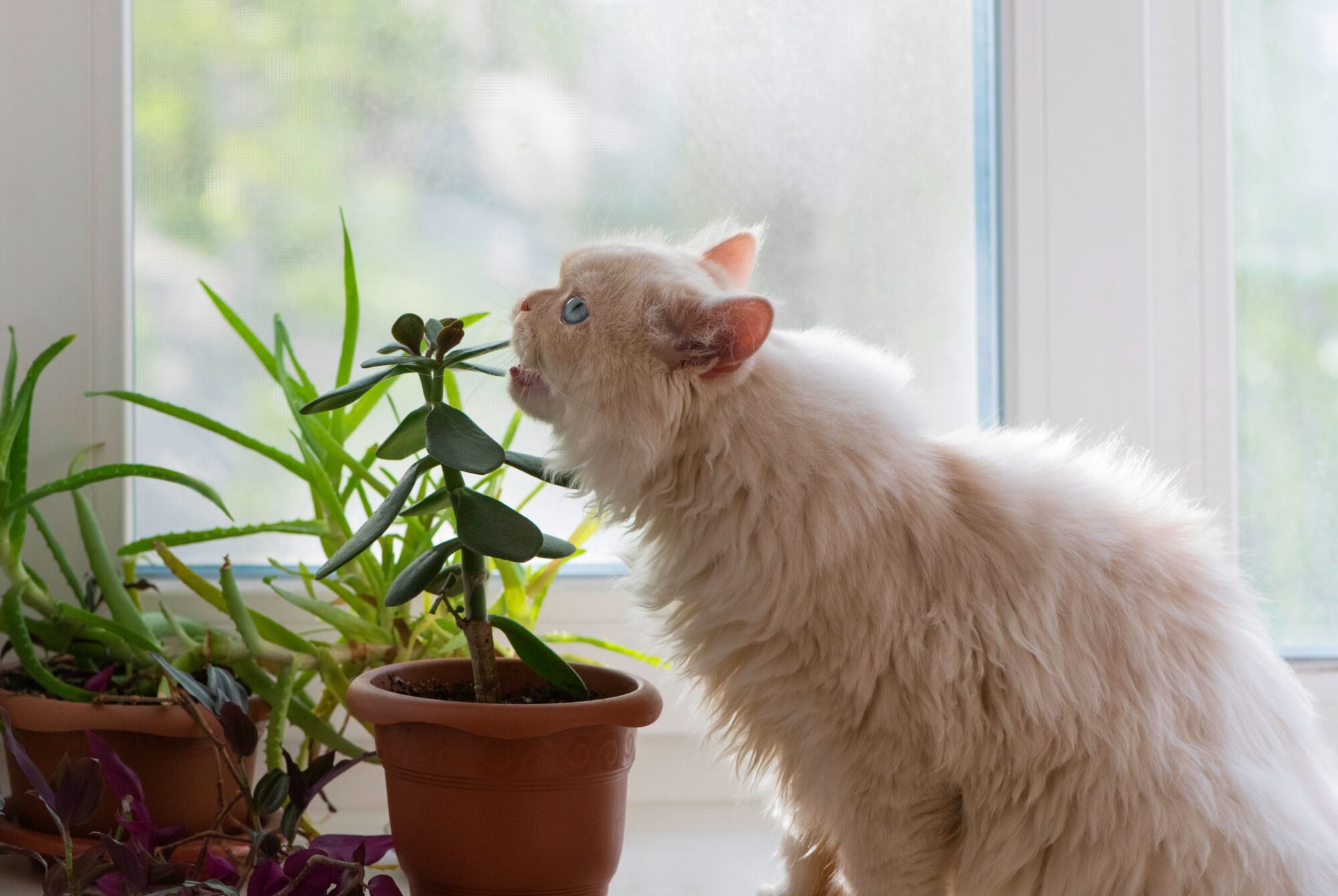Common Pet Poisons: Household Items to Keep Away from Your Pets

Something as simple and as seemingly harmless as a new houseplant could lead to a sick pet down the road. To help prevent pet poisonings from happening, our team at Sunrise Boulevard Animal Hospital has put together some pet safety pointers to protect your furry friends from common hazards.
Human Medications
Topping the list of toxic substances ingested by family pets are human medications, according to the ASPCA. The most common over-the-counter culprits are acetaminophen, ibuprofen, cold and flu medications, and vitamins and herbal supplements. The prescription drugs most often ingested by pets are antidepressants, heart medications, and anticonvulsants.
People Foods to Keep Away From Pets
Pets are healthiest when they eat high quality, species-specific pet foods. Common “people foods” like pizza and chips can cause an upset tummy or worse for our pets. Some of the most problematic foods for dogs and cats include the following:
- Grapes and raisins
- Foods that contain xylitol (including some peanut butter)
- Garlic
- Onions
- Macadamia nuts
- Chocolate (chocolate toxicity in pets is extremely serious)
Indoor and Outdoor Plants
Poisonous plants could be lurking in your flower gardens, indoor planters, and floral bouquets. The ASPCA keeps comprehensive lists of poisonous plants and nontoxic plants. Here are some common poisonous plants to be aware of:
- Lilies
- Azalea
- Rhododendron
- Cyclamen
- Daffodils
- Dieffenbachia
- Oleander
- Sago palm
- Tulips
Cleaning Products:
Pets love to explore by licking and even nibbling the objects around them, and many household items, including cleaning products, have interesting odors that could entice our pets. Exercise extreme caution when using any of the following items:
- Hardware products like paint and construction adhesives
- Sunscreen, soap, and creams for sore muscles (like Biofreeze)
- Cleaning products that contain bleach or ammonia; disinfectants made with benzalkonium chloride; and air fresheners that contain phthalates
- Pesticide, insecticide, fertilizer, and antifreeze
Pet Meds
Even products prescribed for our pets and herbal supplements available for pets over the counter can make our pets sick if they ingest large amounts.
Protect Your Pets From Common Hazards
In addition to storing toxic substances out of paw’s reach, practice these safety tips:
- Never give your pet medications that are intended for people.
- Don’t share table scraps unless you’re sure it’s food that is safe for pets, and remind your guests of this rule.
- Don’t leave food sitting out on your counters or table unattended.
- Clean up spills immediately.
When to Call for Help
Contact us or the Animal Poison Control Center at (888) 426-4435 immediately if your cat or dog has eaten toxic substances or displays these symptoms of a medical emergency:
- Vomiting or diarrhea
- Pale gums
- Tremors/muscle weakness
- Seizures
- Trouble breathing
- Rapid heart rate
- Excessive thirst
More on Pet Safety
Please contact us at (916) 726-2334 if you have more questions about pet poisons or to schedule your pet’s checkup.
